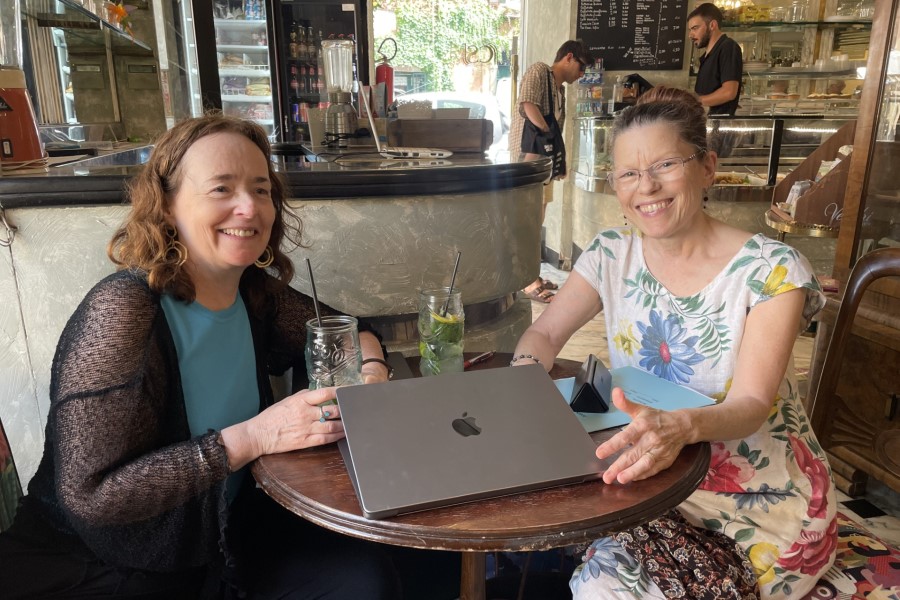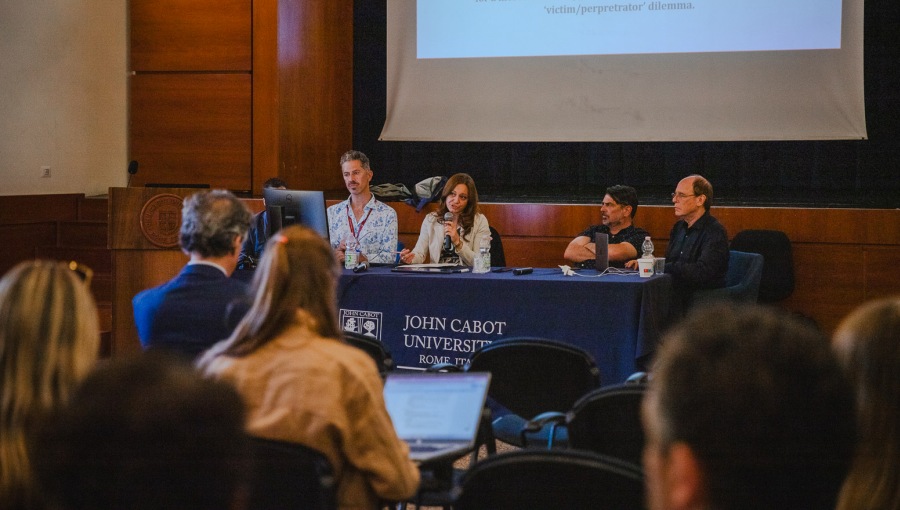Viva New York: Book Presentation by Gianluca Galletto
On November 6, JCU welcomed Gianluca Galletto, an expert in urban technology, innovation, and foreign investment, to present his new book Viva New York (Paesi Edizioni, 2023). JCU President Franco Pavoncello introduced the discussion while RAI TV journalist Barbara Carfagna acted as moderator.

President Pavoncello introduced the speaker and highlighted the importance of Galletto’s book on the rebirth of New York City. He summarized how the text shows that New York’s innovative civic engagement in combining political-administrative experts with entrepreneurs, academics, and multinational corporations has contributed greatly to making the city one of the world’s leading technology hubs.
Galletto graduated in 1992 from Bocconi University in Milan with a degree in Economics and Business Law and soon after he pursued an M.A. in International Economics at Yale University. After spending three decades working in NYC’s financial sector, he became involved in the city’s public administration. In 2018 he became international affairs advisor to former NYC Mayor Bill de Blasio, who authored the foreword to his book. Active in politics in both Italy and the United States, Galletto supported Barack Obama during the presidential campaigns of 2008 and 2012. Currently, he is the main reference point for the Italian center-left in New York.
Galletto portrays New York in the last 20 years from a European point of view and describes it as a progressive city-state that promotes the industries of the future. The image of the Big Apple that emerges from the book is different from the Hollywood one: extremely capitalistic and uncaring of its citizens. Rather, Galletto focuses more on investment in technology, equality, and inclusion, to send a message that Italy itself can take as an example for capital organization, entertainment, and culture.

During the talk, Galletto and Carfagna interacted to guide the discussion toward the main themes covered in Viva New York. The author wanted to underline New York’s incredible ability to have the public and private sectors interact harmoniously to coordinate the development of the city, leading to an exemplary economic, social, and cultural renaissance. According to Galletto, the cultural diversification that has occurred in the city over the past two decades has been key to making New York’s economic system a center of global innovation comparable to Silicon Valley. New York asked itself what it was missing, and decided to intervene and invest in the transformation of spaces to improve the quality of life for its citizens. Galletto says the local community, starting with small business owners, has a very strong impact on overall economic development, so it is important to identify achievable priorities for improvement.
Galletto explained that Italy’s problem is not that it lacks ideas, but that it believes it does not have the same opportunities or resources that others have and that it cannot adapt New York’s evolutionary process to the country’s needs. The author discussed how the city directed all its financial, economic, social, and environmental investments toward innovative solutions that make it a front-runner in all areas today.
Galletto concluded his talk with a discussion of Italy and its future opportunities. He mentioned Milan’s 2015 World Exposition event and how it was a catalyst for a city renewal process comparable to what happened in New York when it made a bid to host the Olympics. Galletto, therefore, holds out hope for a process of regeneration of other Italian cities in the coming years, especially Rome, which, as Carfagna recalled, is currently a candidate to host the 2030 EXPO.





